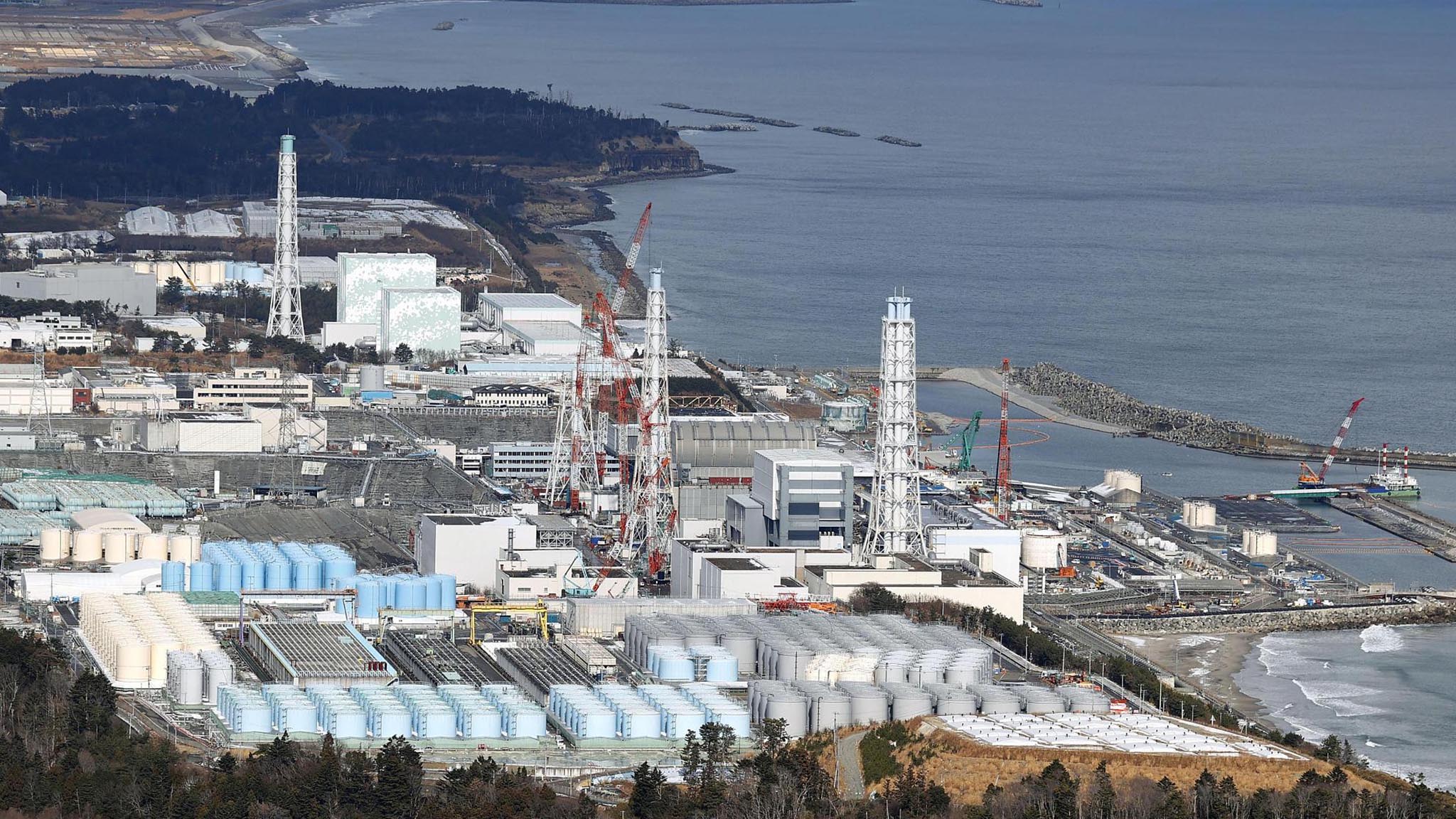For two consecutive days, China has expressed serious concern over Japan's plan to discharge radioactive water from the Fukushima nuclear plant into the Pacific Ocean. Chinese officials called the decision "extremely irresponsible," and urged Tokyo to take on its international responsibilities and reexamine the decision.
"International authorities and experts have clearly pointed out that the discharge of tritium-contaminated wastewater from the Fukushima nuclear power plant into the ocean will affect the marine environment and the public health of neighboring countries," said Chinese Foreign Ministry Spokesperson Zhao Lijian on Tuesday in a regular press briefing.
"The disposal of wastewater is not just an issue within the Japanese side's concern."
01:53

Despite of wide opposition domestically and abroad, Japanese Prime Minister Yoshihide Suga announced the plan after consulting with relevant ministers. The Fukushima Daiichi nuclear plant has been generating massive amounts of radiation-tainted water since the accident triggered by the massive 2011 earthquake and tsunami as it needs water to cool the reactors.
We strongly urge the Japanese side to recognize its responsibilities, adopt a scientific attitude, fulfill its international obligations and respond to the serious concerns of the international community, neighboring countries and its own people, Zhao added.
IAEA warns 'further harm' to environmental protection
The chief of the IAEA responded to the plan by calling for efforts to forestall further harm to environmental protection, food safety and human health.
IAEA Director General Rafael Mariano Grossi made the remarks on Monday while talking about Japan's decision on the treated water with Wang Qun, Chinese envoy to the United Nations and other international organizations in Vienna.
Grossi said the IAEA had taken note of the concerns of relevant parties within the board with mounting global attention to this matter, and the agency will actively advance its work on the assessment and monitoring activities in an impartial, objective and scientific manner.
Expressing China's support for the IAEA in playing a vital role in the assessment and monitoring work, Wang said it is legitimate for China as a neighboring country, along with all other stakeholder countries, to be involved in the agency's work on this front.
South Korea expresses 'strong regret'
Right after Suga's announcement, the South Korean government expressed "strong regret" over Tokyo's decision.
Koo Yoon-cheol, head of South Korea's Office for Government Policy Coordination, said that the government will take every necessary measure in line with the principle of keeping its people safe from the contaminated water from the Fukushima nuclear plant.
South Korea on Tuesday summoned Japanese Ambassador Koichi Aiboshi over Tokyo's decision to release contaminated water from the Fukushima nuclear plant, the YTN broadcaster reported.
U.S. calls it an 'acceptable approach'
"We look forward to the Japan's continued coordination and communication as it monitors the effectiveness of this approach," said the U.S. State Department in a statement on Tuesday.
In the statement, the department stressed Japan has weighed the options and effects and has been transparent about its decision. The government "appears" to have adopted an approach in accordance with globally accepted nuclear safety standards, it added.
In the Tuesday briefing, Zhao urged Washington to treat Japan's decision according to the facts, rather than according to what Japan is saying.
China hopes the U.S. side will treat the real environmental issue without reflecting on any particular country, he said, citing experts saying wastewater of such – even after processing – would still be radioactive and thus, would be harmful to the marine environment of countries nearby.

